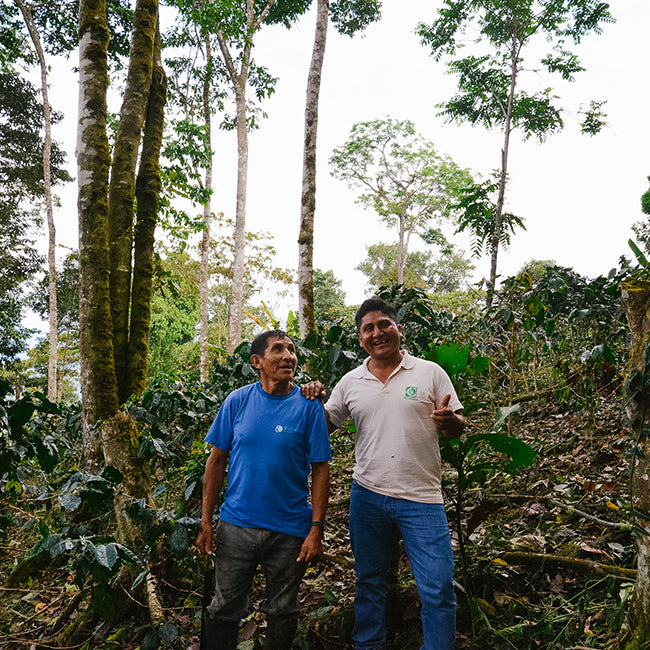
Over the decades we’ve met some amazing agronomists who contribute powerfully to coffee farmers’ success. Most coffee farming co-ops have agronomists on their staff team. As a result, the farmers get access to an agronomist as their own consultant!
But what is an Agronomist?
An agronomist is an expert in the science of soil and soil management.
Why is this so important for the coffee industry?
Specific conditions are required for growing healthy coffee such as climate, elevation and soil. Agronomists study soil quality to better understand and gather information on current and future coffee harvests. Without agronomists, coffee (and many other crops) wouldn't be what they are.


Agronomists have a biology and chemical focus, however the majority of their time is spent in the field, pulling samples and testing for deterrents. This information is shared with farmers and co-ops which helps to establish preventative measures and develop ways to improve.
Do Agronomists only study coffee?
Agronomists are not specific to coffee crops; they can work in any type of crop cultivation or soil management. Agronomists can even be used for developing outdoor spaces, like golf courses and sports fields. Having access to an agronomist can be key to spotting any potential threats on a molecular level. This is crucial for dealing with the problem before it fully impacts or destroys future harvests; proactively, instead of reactively.
Since coffee typically likes to grow in subtropical climates at higher elevations, there are many factors which can impact cultivation. These factors of cultivation are geographically specific and differ depending on climate and elevation. For example, erosion can be a factor on steep land, and mould when there isn’t proper irrigation.

Elisabeth, who trained to become an agronomist from the funds raised at Famicafé, now works at farms around the region where she grew up.
Where do Agronomists work?
Commonly, agronomists will work in a certain region, between different farms. This is beneficial as agronomists can use their collective knowledge on an area’s conditions to take mass preventative measures prior to the spreading of a problem. This can save the region from developing more dire consequences. Agronomists can also build a historical reference of soil and note any trends or cycles .
Agronomists will compile and collect their findings and present them to farmers and workers. This provides farmers with information regarding the current state of the soil, which in turn helps the harvest.

Agronomists role in Level Grounds' Organic Coffee
Agronomists can work with a variety of focuses, including conservation and genetic engineering of soil and crops. Level Ground coffee is organic, so agronomists that work with our farmers and producers do not work with genetic engineering.
The next time you drink a delicious cup of coffee, you can think of the farmers and agronomists who worked hard to improve the quality of the earth, farm and coffee plants!
